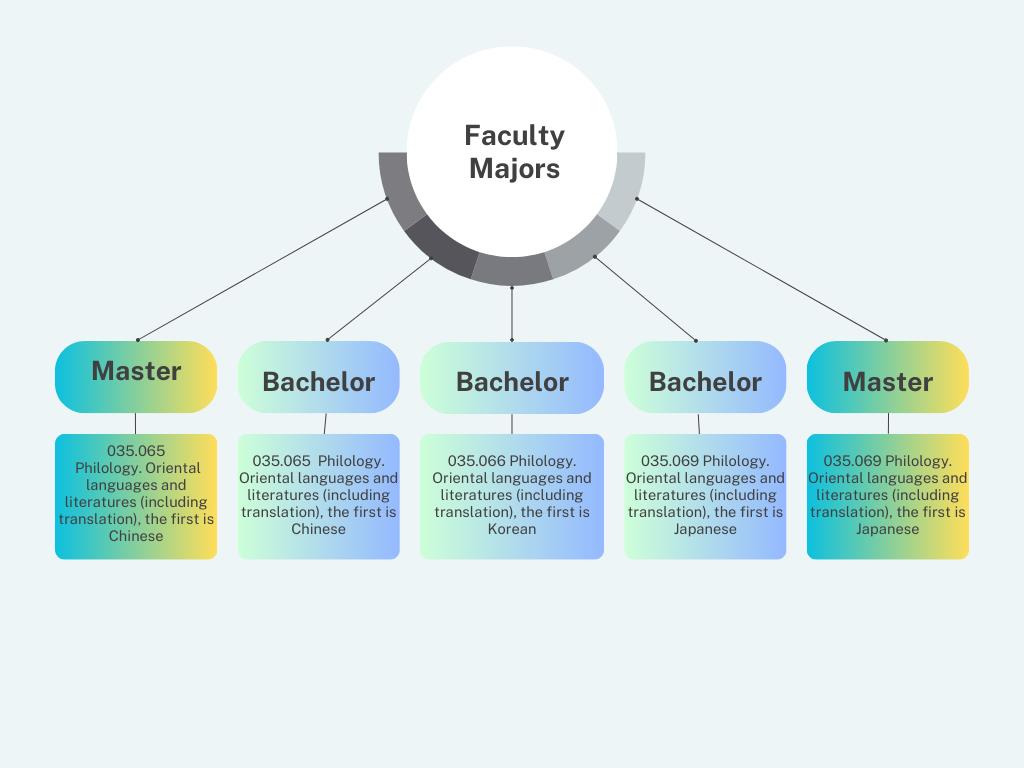
Click for more information here.

Click for more information here.
The Faculty of Oriental Languages is a newly established faculty in June 2022, which consists of three departments:
Department of Chinese Language and Translation ;
Department of Japanese Language and Translation;
Department of Oriental Culture and Literature.
Mission statement:
The Faculty follows the mission of the University - to serve the individual, the community, and society. At the same time, the mission is to create an environment for the comprehensive development of the student's personality in the field of Oriental Studies. Higher education, in addition to theoretical and practical skills, is a worldview, philosophy, and way of life. Therefore, the faculty has a harmonious environment equipped with the latest technology not only for comfort in the learning process, but also for progressive and rapid training of specialists.
Our values:
1. Humanity;
2. Mutual respect;
3. Trust;
4. Professionalism;
5. Dedication to the cause;
6. Leadership;
7. Unity;
8. Innovation

Student life at the Faculty of Oriental Languages is a fascinating kaleidoscope of unforgettable moments and unrivalled experiences. At the university, every day is an opportunity to develop your interests and meet new people.
In the morning, there are tireless lectures and fascinating seminars, where every thought is a step towards understanding the world. Then there are meetings with friends in the university café, where not only scientific topics are discussed, but real friendships are born.
The uncertainty of the evening is an opportunity to discover oriental art, culture, or just have fun at exciting student events. Later, there are joint parties where different talents and energy of young people come together.
And, of course, student life is not only about learning, but also about self-realisation. Moments of thoughtfulness while preparing for exams and the joy of achievement. Such a variety of impressions and opportunities creates a unique experience that turns student years into the brightest period of life.
But the most long-awaited moment for each of our students is the confirmation of participation in a language internship in Japan, China, and recently the Republic of Korea. The University's active use of the Moodle e-course system allows our students to undertake language training abroad for one semester or academic year without interrupting their studies at the University. For example, in the last academic year alone, dozens of students of Chinese and Japanese philology dozens of students of Chinese and Japanese philology completed internships in Japan and the People's Republic of China without interrupting their studies.